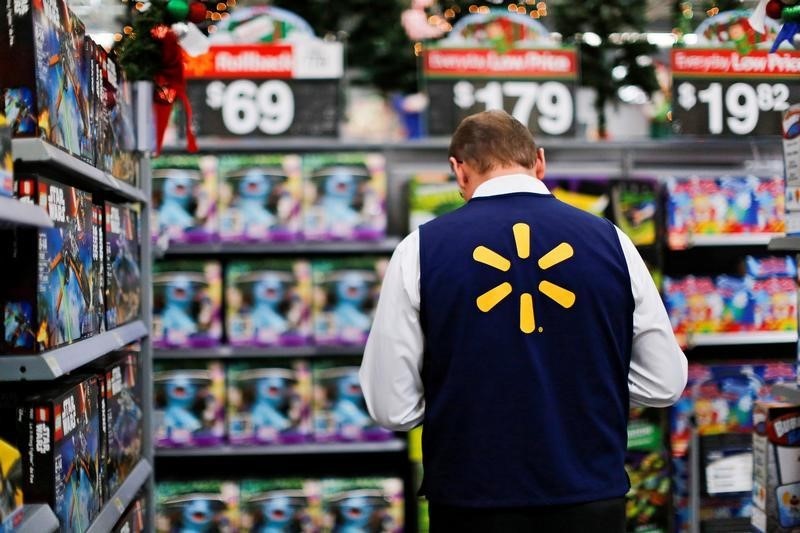This post was originally published on this site
https://i-invdn-com.investing.com/trkd-images/LYNXMPEI0O0W5_L.jpg
(Reuters) – Retail giant Walmart (NYSE:WMT) Inc said on Tuesday it is investing in indoor vertical farm Plenty as part of a $400 million funding round and will be buying leafy greens from them for its stores in California.
The investment in the South San Francisco startup that grows leafy greens under banks of lights is one of the biggest in the indoor farming business, and the distribution deal from Walmart is a sign of mass market appeal from an industry that has not delivered on early expectations. High costs have been a challenge for the industry.
Martin Mundo, the Walmart executive in charge of buying all produce for U.S. stores, declined to say how much Walmart was investing, only adding that it will have a board seat when the deal is closed. The deal is subject to regulatory approval, Walmart said.
Plenty, which secured SoftBank Group Corp’s Vision Fund 1 investment in 2017, recently said Arama Kukutai replaced the previous CEO and co-founder, Matt Barnard, who will remain as executive chairman of the board.
Kukutai, who is also an early investor in Plenty, told Reuters that Plenty has been able to increase yield in its leafy green growing rooms by 700% in two years. He said raising yields was key to profit.
“Their path to yield is absolutely critical,” said Mundo about why Walmart chose Plenty over nearly a dozen other indoor farms it visited as it sees this as an environmentally sustainable way of farming. The fact that Plenty also has a path to growing strawberries and cherry tomatoes at scale, and not just leafy greens, was another advantage, he said.
In late 2020 Plenty raised funds from berry brand Driscoll’s and signed a joint development agreement to grow Driscoll’s strawberries.
Mundo said once Plenty’s new farm in Compton, California comes on line later this year, it will serve leafy greens to all of the Walmart stores in the state.
Plenty isn’t alone in raising big funds in recent months. In May New York-based indoor vertical farming startup Bowery Farming raised $300 million in a round https://www.reuters.com/article/agriculture-indoor-farming-funding-idAFL2N2NA0LM that put the company valuation at $2.3 billion. Plenty declined to say how it was valued in this latest round of funding.
Still, others have struggled. AeroFarms said in October https://www.aerofarms.com/2021/10/14/terminate-business-combination its deal to list on the stock market through a blank check company was terminated.
Michael Rose, a partner at Better Food Ventures which invests in food technology, said he has seen at least two companies forced to take a lower valuation to raise funds. But he added that was normal in industries with emerging technologies.
“What we’ve seen during the pandemic is they’re selling everything they can produce,” Rose said about the indoor farms. While they have been able to charge a premium for those salads for now, as they grow and compete on a bigger scale they will face pricing pressure, he said.
“We’re still early … We’re talking years down the road.”



